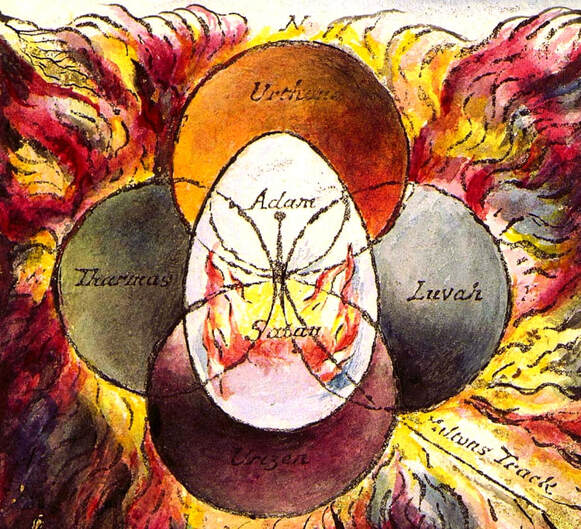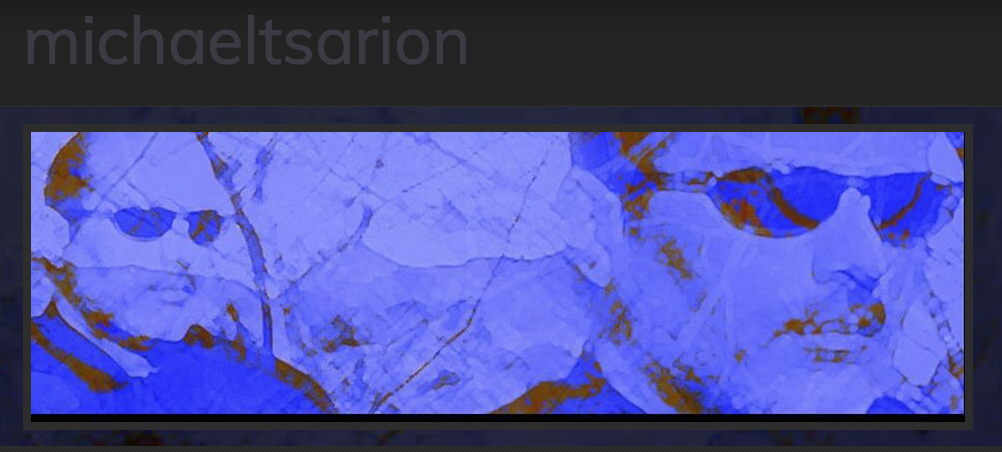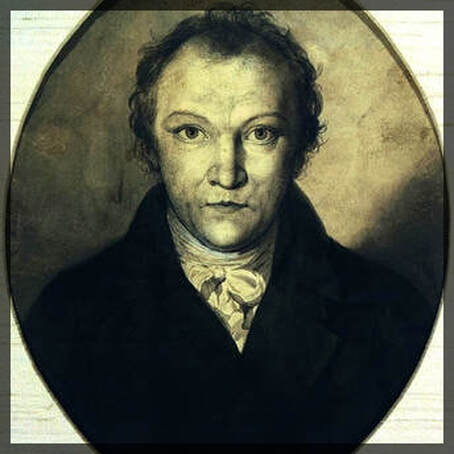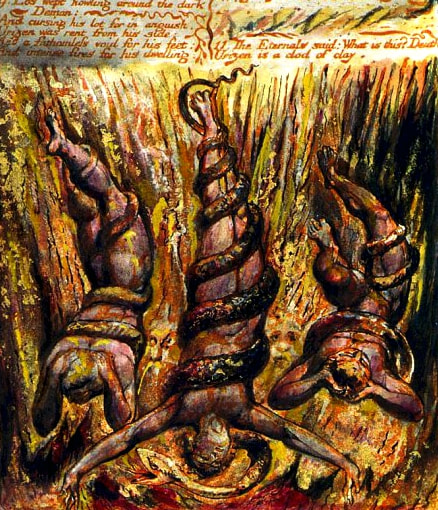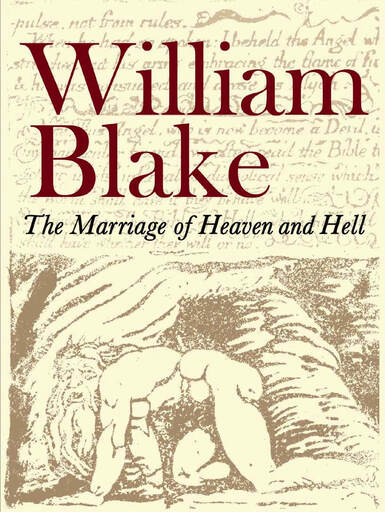To see the world in a grain of sand, and a heaven in a wild flower, hold infinity in the palm of your hand, and eternity in an hour – William Blake (Auguries of Innocence)
As far as William Blake was concerned, it was not man who fell from paradise, but God himself.
In his extraordinary writings, and particularly in The Four Zoas, Blake overturns Jewish and Christian conventions and paradigms about the origin of creation and identity of its alleged maker.
In Blake’s idiosyncratic corpus the creator god is known as Albion, who due to internal weakness and fragmentation falls into darkness.
Like all true western mystics, Blake asked important questions about the psyche of God. Like Jacob Bohme and others he queried whether God has an unconscious and a dark side, and if something drastic went wrong in God’s thinking. These antinomian questions are avoided, and often considered taboo, by Christians and believers.
The realm into which Albion falls is referred to as Generation. Below this low stage lies Ulro, a hell-like state into which humans can easily descend never to return. This final descent can be likened to a second or even third state of spiritual fall.
However, even in the realm of Generation, where man now exists, things get progressively worse after Albion’s fall. This is primarily due to the kind of institutions that arise making spiritual vision impossible. These are Blake’s famous “Satanic Mills,” which fashion the mind-forged manacles caging the mind of every child and adult. Blake openly accused the Church and State, and other civil institutions for obstructing spiritual aspiration and development. He particularly loathed academies of all kinds, believing that no good ever came from schools and colleges.
Albion’s fall from paradise – the level Blake refers to as Eden – gave rise to the lower worlds of Beulah, Generation and Ulro. What Blake means is that with God’s fall, heaven itself was voided and is nonexistent. In other words, Christians, Jews, and others, are quite wrong to speak of “higher” worlds or realities to which believers might one day return.
For Blake, the fall of Albion gave rise to the only reality that exists, the imperfect world of “Single Vision” and materialism into which we are born. If there’s a way out, it’s not to be found by perusing religious scriptures or submitting to dogma. Far from it. It’s found once we have a deep understanding of who we are, what we’ve become and why?
Blake’s controversial account compromises the view of Gnostics, who also tend to believe in higher and lower realities, and a multiplicity of stages or realms above our known universe. For Blake it’s simply a matter of states of consciousness and ways of seeing imprisoning and misdirecting consciousness. The fall is, therefore, of an existential kind, being a matter of gross or perverse outlooks and perspectives. It is also a matter of the diabolical conditioning of minds by psychotic men speaking like angels while behaving like devils.
.
All Bibles or sacred codes have been the causes of the following errors…That Man has two real existing principles: a Body and a Soul…That energy, called evil, is alone from the body, and that reason, called good, is alone from the soul – William Blake
The fall of Albion entailed his fragmentation into four hemispheres or subpersonalities. These separate selves Blake calls Zoas (from a Greek word meaning “Living Beings.”)
The Zoas are Urthona, Urizen, Luvah and Tharmas. After their separation, they constantly war with one another, each determined to gain supremacy and control the manner in which paradise is revisioned and reformed.
Having their own identities, each Zoa experiences its own reality. Something within their natures seeks wholeness, but this yearning for unification is countered by an urge for independence and self-will. The desire to remain distinct is apparently stronger in some Zoas than in others.
The four Zoas metaphorically represent the fallen Body of God:
- -Urizen (head)
- –Luvah (heart)
- -Urthona (genitalia)
- -Tharmas (physicality/body)
The etymology of their names is also suggestive. Urizen is a play on the terms “reason” and “horizon,” while Luvah is clearly near to “love.” Tharmas is a play on “thermal” and “terminal.”
The names of other important characters in Blake’s corpus, such as Vala, Los and Orc, are based on similar etymological inventiveness. For example, Los is made from the word sol backwards, while Vala implies a valley and also a veil. Enion resembles the word onion, implying layers and deceptiveness.
In this sense we see that Blake’s name for God is also highly significant, since Albion is the ancient name of England. One of Blake’s greatest abilities as an poetic thinker was to seamlessly blend psychological, mythical and historical elements together. This almost unique ability can confuse readers, and has led many critics to misunderstand Blake. The title of some books, such as America, Europe, Asia, etc, gives some the impression that he speaks solely of historical events and was nothing more than a idealistic social reformer.
For Blake history is psychology, and psychology spirituality.
He believed that the history of this or that land and its people reflects internal psychic dynamics. He certainly saw the borders between the provinces of Ireland and Britain as indicative of deeper spiritual and psychological divides, many of which need to be there. Ideas of this kind are still not competently understood today.
As said, the defiant and separatist mentality of the Zoas soon causes further upheaval and polarization. Eventually the Zoas experience so much inner tension that they undergo further subdivision. From this fall we get four Emanations: Ahania, Enitharmon, Enion and Vala. Given that these four are female, we take it that the original Zoas are male or masculine.
- -Ahania (Urizen’s Emanation): Feeling/Wisdom of the Heart
- -Enitharmon (Urthona’s Emanation): Loins/Sexual Organs
- -Enion (Tharmas’ Emanation): Motherhood/Femininity
- -Vala (Luvah’s Emanation): Nature/Natural Order/Appearance
Although they stand separate from their Zoas, the Emanations potentially represent the means by which the Zoas return to a holistic state. However, as Blake shows, a great deal stands in the way of the reintegration of Zoa and Emanation.
Throughout works like The Four Zoas, Blake dissects the reasons why the various Emanations are unable to experience a “Chemycal Wedding” with their Zoas. In this regard his Prophetic Books constitute an entire metaphysical corpus second to none.
In other works, with a slightly different and simpler take of psychohistory, Blake makes mention of another Emanation, this time of Albion himself. She is known as Jerusalem. Again, Blake plays on terms, thereby fusing history with myth and psychology.
In Jerusalem, his longest poetic undertaking, Blake comes close to the work of various hermeticists, kabalists and alchemists. There is also a happy ending, since Jerusalem succeeds in awakening Albion and “restoring” him to wholeness.
Blake’s profound Hermetic thought obviously influenced that of the great Carl Jung. Regrettably, this is not the place to extrapolate in detail on the Blakean elements turning up in Jungian theory. All I can say is that they are plentiful.
Of course Blake’s own body of work reveals the influence of Paracelsus, Jacob Bohme, Meister Eckhart and other earlier mystics. Some of his work bears a similarity to that of Kabalists such as Isaac Luria, with his early thought clearly being indebted to that of Emmanuel Swedenborg.
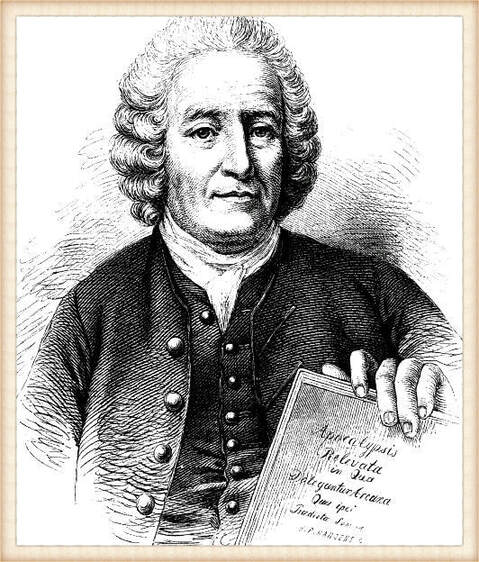
We see that in many respects, Blake’s ideas on the psyche certainly anticipate Jung and other psychologists who continually fail to cite him and his ideas. And although various modern Gnostic societies nominate him as a kind of patron saint, it must be emphasized once again that Blake was not himself a Gnostic, despite the occasional Gnostic themes running through his psychodramas.
Blake lived in poverty most of his life, and died in obscurity. He was shunned by London’s artistic community and considered mad by many who came across his wrok. If it were not for his few patrons and in later times the obsessive interest of Dante Gabriel Rossetti, we might never have heard of Blake, since shortly after his death an acquaintance, Frederick Tatham (a Christian), took it on himself to burn a great deal of Blake’s unpublished manuscripts.
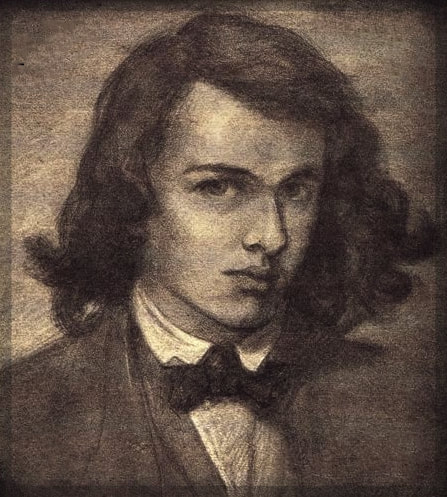
The reason for the fall and frightful condition of consciousness is explained by Blake throughout his prophetic books, which are far superior and insightful than supposedly holy or inspired texts such as the Old and New Testaments, Book of Enoch, Gnostic Gospels, Koran and so on.
Blake’s descriptions of Albion’s eventual restoration are also of interest. Once again it must be made clear that words like restoration are ultimately unworkable when it comes to Blake’s vision, because that which is past isn’t being reconstituted in the normal sense. Albion’s awakening is only metaphorically conceived as hearkening to a past state. Actually it involves something far more phenomenological, immediate and novel.
There is no “return” to anything described as a Godlike condition or supernatural reality transcending ours. Ideas of this sort must be wholly rejected if true progress is to occur. Such concepts are the concoction of priests and are utterly meaningless.
What once existed exists no longer. An unchanging supernatural world with a perfect God at its center simply doesn’t exist except in the imaginations of Christians and religiously-minded types with a paltry understanding of what actually occurred to consciousness.
As a result of Albion’s fall we not only descended into spiritual darkness and mental and physical impotency, but we also fell under the devilish control of the scurrilous religions and governments which set themselves up as supreme authorities in the fallen world. Consequently, what these patriarchs deem unholy or demonic is the opposite for Blake. In the marriage of heaven and hell, it is heaven that benefits most.
Blake laments the presence of the black-robed priests who bind his desires and stifle his creativity. He also laments the presence of materialistic scientists who deliver a false vision of nature. They concoct a mundane, desacralized image of the cosmos and of man. They foist upon us what Blake describes as a “Newtonian Sleep,” or mentally moribund condition in which we lose all genuine spontaneous wonder at the world around us and all personal psychosomatic sensitivity.
The chronically desensitized materialist enters into his Newtownian slumber, losing all understanding of his spiritual origins, and of the absolutes in which his being is grounded. Under imposed Single Vision he remains unaware of the great metaphysical inversion that has occurred.
For religious types and other believers in progress and ascent, man’s ultimate destiny is to become godlike. Religious dogma provides the standardized, authenticated methods for living life in order to please God and win favor. Blake saw through this lie and indicted priests and scientists for colluding in making the horrific conditions of the fall acceptable and even comfortable for the fallen. Striving to return to something that doesn’t exist wasn’t his idea of a meaningful existence, regardless of how many devious priests endorsed it.
In Blake’s unique iconography and cosmogony, the Zoa known as Urizen is instrumental to maintaining the “Newtonian Sleep.” He represents the mental part of Albion which, after the fall, became the supreme reigning authority. Urizen seeks to dominate consciousness, and succeeds despite resistance from other Zoas who think it best if they rule over consciousness instead. Blake’s finest poetic and imagistic stanzas refer to and describe Urizen, the “Ancient of Days.”
All religion comes into being as Urizen attempts to seize control and stabilize himself after the fall. It exists to preserve what can be preserved of the pre-fallen world, and to formulate and implement the process of restoration. For Blake, however, all that exists of the past are insubstantial memories with little practical value. They merely serve the priests who profit from our confusion, nostalgia and dependence. For Blake, it is axiomatic that we cannot build strong new worlds on a memory.
The perverse unilateral thinking that brings about religious dogma later gives rise to materialism and scientism. Urizen imprisons imagination and intuition and establishes the nefarious inhuman institutions of the world, but does not see himself as a devil or architect of evil. As far as he is concerned, his plan of action eventually leads to the restoration of the original godlike condition. Therefore, he alone must be in charge of Albion’s revival.
Urizen considers his project so utterly vital that he brooks no resistance. All rivals must be defeated and chained. All activities must be meticulously chronicled and preserved, and for that process to succeed great colleges must arise to honor and commemorate the eternal return. In Urizen’s world one’s merit is awarded for services rendered. Blake saw the world’s many figures of authority as disciples of Urizen, obediently and tirelessly carrying out his will and receiving honor for doing so.
The cosmos, although a shadow of what was, still contains sparks of Spirit which prevent souls falling into complete everlasting darkness. If encountered correctly, these sparks can form the basis of a new paradisal reality. Consequently, Urizen and those he commands get to work building a new heaven amid the ruins. The priests serve their “god” – the king in crimson.
According to Blake, we live in Urizen’s simulated universe, and think according to the restrictive inflexible parameters laid down by his agents. In this respect Urizen resembles the Gnostic Demiurge, although as said we are not to consider Blake a Gnostic, which is a common mistake made by many who come across his work but only superficially understand it.
Urizen is the great Artifex whose mandate is to rebuild a semblance of what was. However, as his monstrous project advances he meets resistance from other Zoas who no longer believer his way is right. They object to his suppression of freedom and imagination, and reject the oppressive world built in his image demanding total selflessness and unflinching obedience.
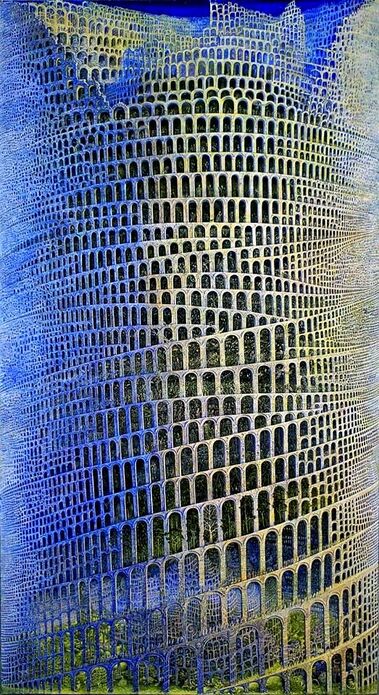
As a superlative psychologist, Blake was all too aware that his many iconic eternals represent aspects of a single consciousness. Existentially speaking, it is clear that for Blake each Zoa or entity also represents a kind of vision – or way of seeing – as to what constitutes man’s restoration to wholeness.
For some it is signing on for Urizen’s scheme, while for others it is a matter of absolute rebellion against anything and everything demanded by Urizen the tyrant. So it is with Blake’s antagonists Los and Orc, the implacable enemies of Urizen.
For a certain type, the solution is to dominate, control and lead. People run amok in a fallen state, lost to themselves and given to neurosis and irrationality. They are their own worst enemies. Best then to corral and regiment them until they know and do better. Don’t spare the rod!
For others it is a matter of existing in a dreamy poetic bubble, and of adopting a libertine lifestyle. Nothing much can be done about the ruinous condition, but one can always have fun and potter about being “arty.” Live and let live...Drop Out Man!…Peace!
Another type bellows about imperfection and who is to blame for the dire condition of existence. Get the “People” together man...Down with the system!…Burn the world!
Another type throws up their hands and rejects every plan for restoration. After all, since Spirit fell it therefore still animates our precarious world to a degree, however meagerly. Let’s not weigh ourselves down with mighty metaphysical pondering, worry or grandiose plans leading only to more mess and difficulty. Nature lies before us in all its bounty, so with a little patience and inventiveness we can make it habitable and even enjoyable. No need to fret over what was lost and what can never be again. The Emanations Vala and Enion in particular represent this passive attitude.
Although Blake vehemently attacked science and materialism, he reserved his fiercest diatribes for religion. Maybe Albion’s restoration to wholeness is prevented because of the false image of heaven and God presented to us by the institutions of religion. After all, orthodox Christians and Jews don’t believe it was God himself who fell into darkness. Moreover, they erroneously believe in a supernatural realm to which souls go after death, a place real and presently existent.
As said, for Blake this dogmatic tenet was absolutely false. There is no place above and beyond this world. And what we have in this world is the result of a fall. Therefore, talk of some perfect Platonic world, or a “return” to a more perfect spiritual reality only maintains ignorance and priestly control.
For Blake there is only one kind of existentially valid religion, that which arises from one’s own being. It pertains to no other person and needs no followers or shrines. It is not born from mental folly, and leads in no particular direction or toward any fixed goal. As Blake wrote, it’s a matter of which road one decides to walk: the straight road of invention or crooked road of imagination.
Salvation, he knew, lies in one’s state of being and way of seeing.
For more on Blake and his radical ideas, see my books Disciples of the Mysterium and Schelling. (Here for more…)
Michael Tsarion (2020)
michaeltsarion.com
…
Come Follow Us on Twitter – Come Like Us on Facebook
Check us out on Instagram – And Sign Up for our Newsletter



